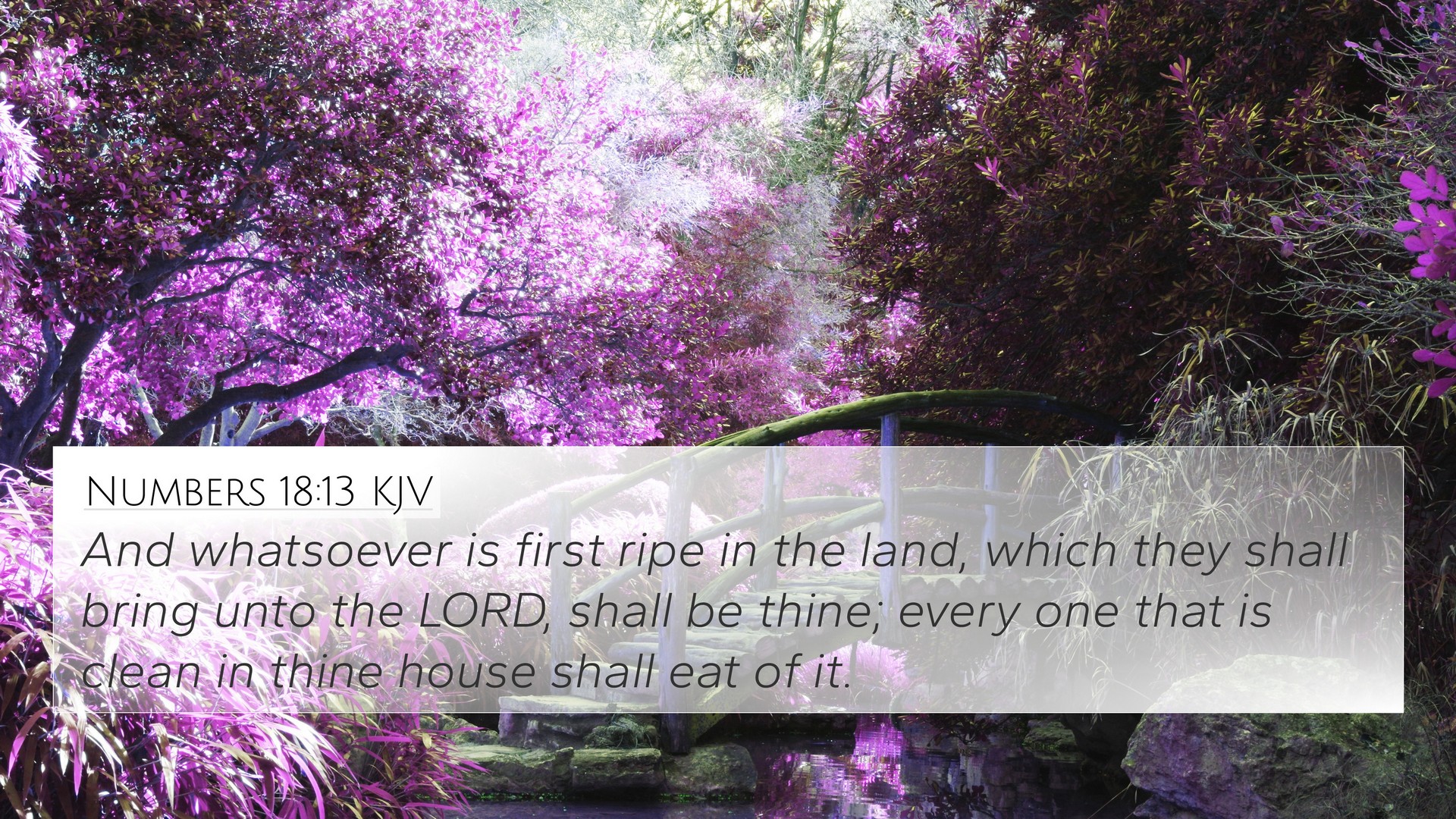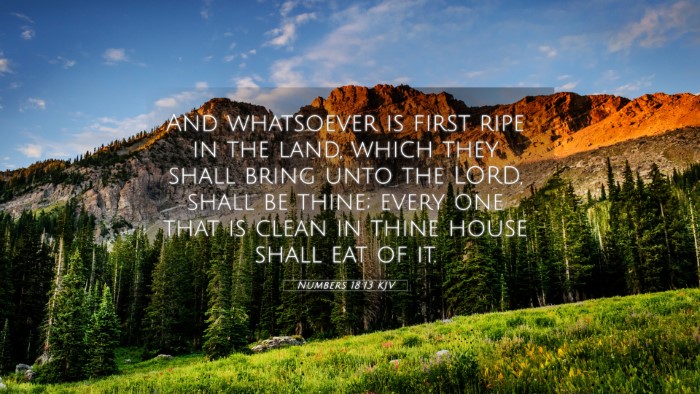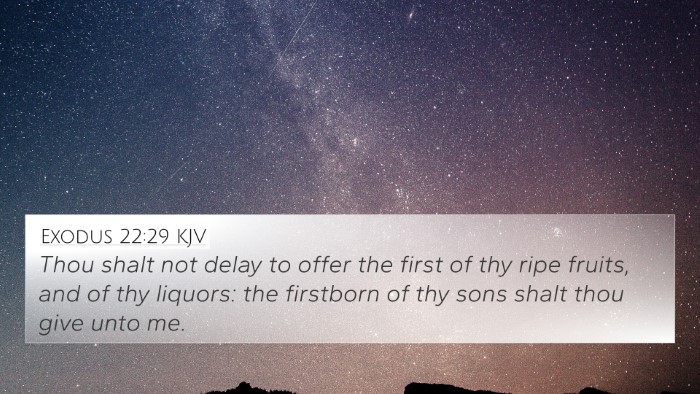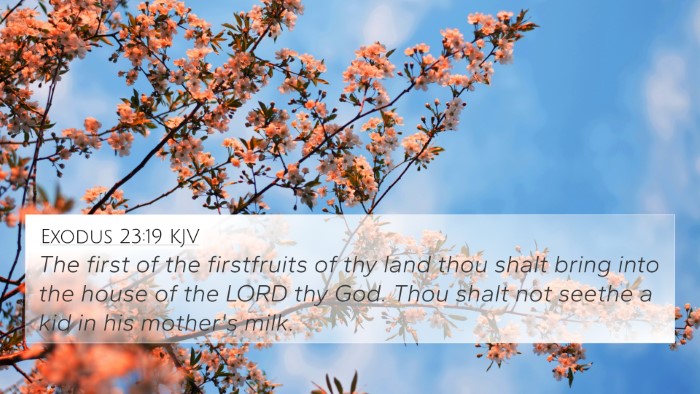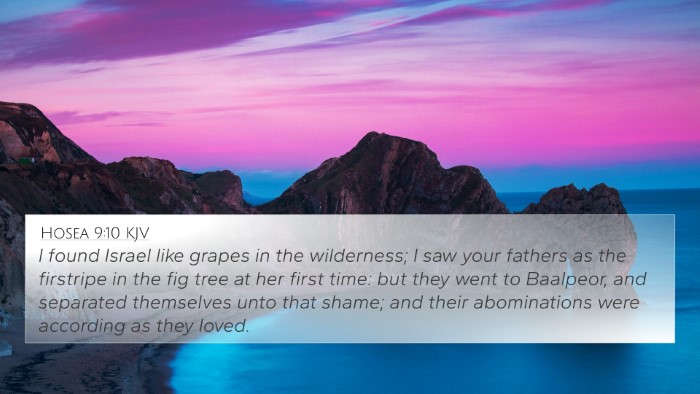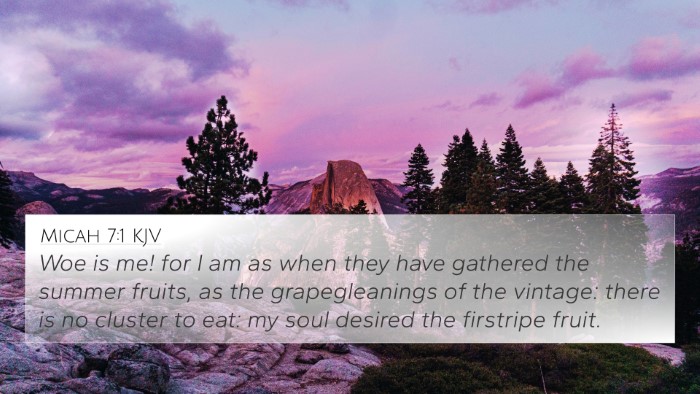Understanding Numbers 18:13
Verse: "And the first ripe fruits of all things, and every oblation of all, of every sort of your oblations, shall be the priest's: and the first of all your dough, and every offering of yours, shall be the priest's: and of the first of your dough ye shall give unto the LORD an heave offering." (Numbers 18:13)
Summary of Key Themes
This verse highlights the divine allocation of the first fruits and offerings to the priests in Israel. These provisions were not only about sustenance for the priests but also served a higher spiritual significance, indicating the people’s acknowledgment of God’s sovereignty over their lives and possessions.
Insights from Public Domain Commentaries
-
Matthew Henry:
Henry emphasizes the importance of the first fruits as a representation of the best of the harvest being dedicated to God. This act of giving was a reminder of God's providence and an acknowledgment that all they had was a blessing from Him. By dedicating the first fruits, the people recognized their dependence on God.
-
Albert Barnes:
Barnes points out that this verse illustrates the distinction of the priesthood and their rightful claim to the offerings. It reinforces the concept of holiness associated with the offerings and signifies the privilege and responsibility of spiritual leaders to serve God and the community. The first fruits symbolize a commitment and an act of faith from the people towards their divine provider.
-
Adam Clarke:
Clarke provides an exposition on how the offerings serve a dual purpose: they cater to the physical needs of the priests while also fulfilling the Lord's commandments. This highlights the priest's role as mediators in worship and how they were vital to the community’s spiritual health.
Cross-References and Thematic Connections
Numbers 18:13 connects with various other scriptures, illustrating themes of holiness, dedication, and God's provision:
- Exodus 22:29: "You shall not delay to offer from the fulness of your harvest and from the outflow of your presses." - Similar emphasis on the offering of the first fruits.
- Leviticus 23:10: "Speak unto the children of Israel, and say unto them, When ye be come into the land which I give unto you, and shall reap the harvest thereof, then ye shall bring a sheaf of the first fruits of your harvest unto the priest." - Further instructions on presenting first fruits.
- Deuteronomy 26:1-2: Provides a directive for Israel to bring the first fruits when entering the land as a way to acknowledge God’s blessings.
- Proverbs 3:9: "Honor the Lord with your wealth, with the first fruits of all your crops." - Connecting the act of offering to honoring God with one’s possessions.
- 1 Corinthians 15:20: Discusses Christ as the “first fruits” of those who have fallen asleep, linking the theme of first fruits to Christ’s resurrection.
- Romans 11:16: "If the dough offered as first fruits is holy, then the whole batch is holy; if the root is holy, so are the branches." - Drawing a parallel to the holiness represented in offerings.
- Hebrews 7:4-10: Discusses the greatness of Melchizedek and touches on the idea of offerings and priesthood, linking back to the themes in Numbers.
- Malachi 3:10: "Bring the whole tithe into the storehouse, that there may be food in my house." - Another context of giving and God’s promise of provision.
- Philippians 4:18: "I have received full payment and more; I am well supplied, having received from Epaphroditus the gifts you sent, a fragrant offering, a sacrifice acceptable and pleasing to God." - New Testament reflections on offerings and their spiritual significance.
Conclusion
In Numbers 18:13, we see a profound lesson about offering, priorities, and dependence on God. The scripture not only reflects God's provisions for the priesthood but also serves as a paradigm for the followers of God on how to honor Him with their best. Cross-referencing this verse with others deepens our understanding and illustrates the continuity and themes within the biblical narrative.
